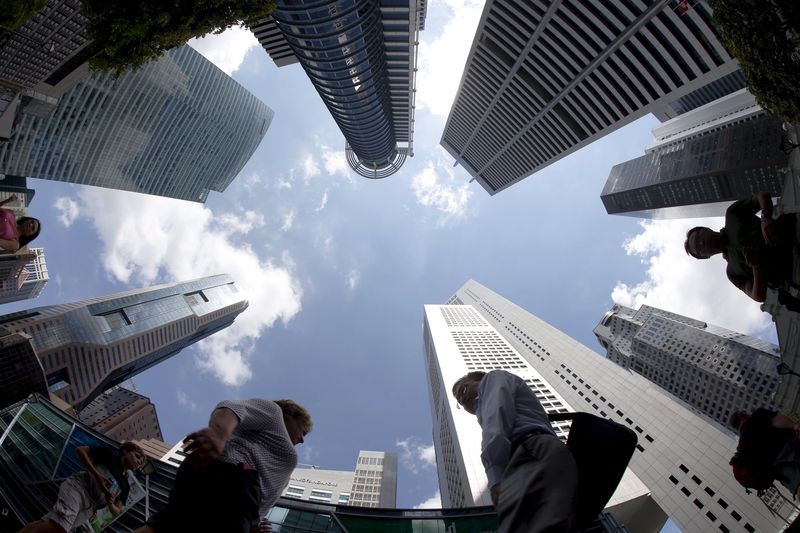Gold bars to be exempt from tariffs, White House clarifies
By Ambar Warrick
Investing.com-- Singapore inflation rose more than expected in August, data showed on Friday, as the island state continues to struggle with more expensive commodity imports and rising food prices.
The core consumer price index (CPI), the preferred inflation gauge of the Monetary Authority of Singapore (MAS), grew at an annualized rate of 5.1% in August, more than expectations for an increase of 5%, and above July’s reading of 4.80%.
Including volatile items such as accommodation and private transport, Singapore’s CPI inflation rose 7.5% in August, more than expectations of 7.2%, and above last month’s reading of 7.0%.
Food and transport costs were the biggest contributors to price pressures in August, given that the island state imports almost all of its fuel and grain.
The readings lend further credence to the view that the MAS is likely to tighten monetary policy further when it meets in October. The central bank forecast core CPI to end the year between 3% and 4%, while overall inflation will trend between 5% and 6%.
Singapore was hit hard by rising commodity prices this year, given the city’s large dependence on imports. The MAS said that this trend is likely to continue due to increasing inflation in most of its trading partners.
“The recovery in domestic demand in some regional economies as COVID-19 restrictions are eased could lead to higher inflation in these economies. Hence, upward pressures on Singapore’s import prices could persist,” the MAS said in a statement.
Strength in Singapore’s labor market and wages has also kept spending upbeat in the country, which has in turn pushed prices upwards.
The outlook for the Southeast Asian financial hub has worsened this year, largely in part due to heightened commodity imports. Economic weakness in China, the country’s largest trading partner, has also weighed on expectations for local growth.
The MAS tightened policy three times this year, and is likely to continue doing so to offset increased inflationary pressures.
But a separate reading showed that Singapore’s industrial production recovered sharply in August, indicating that some facets of the economy remained steady despite price pressures.
